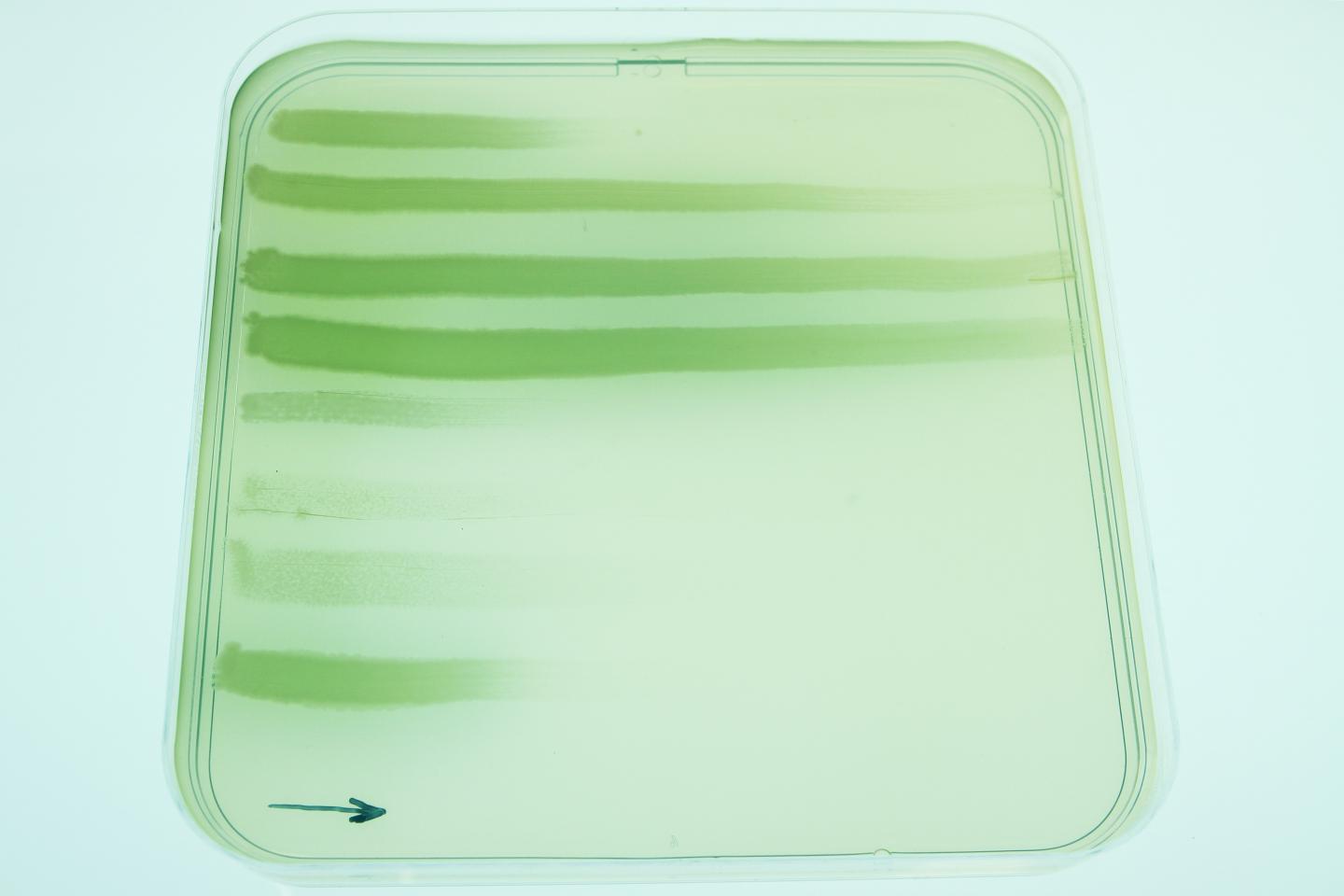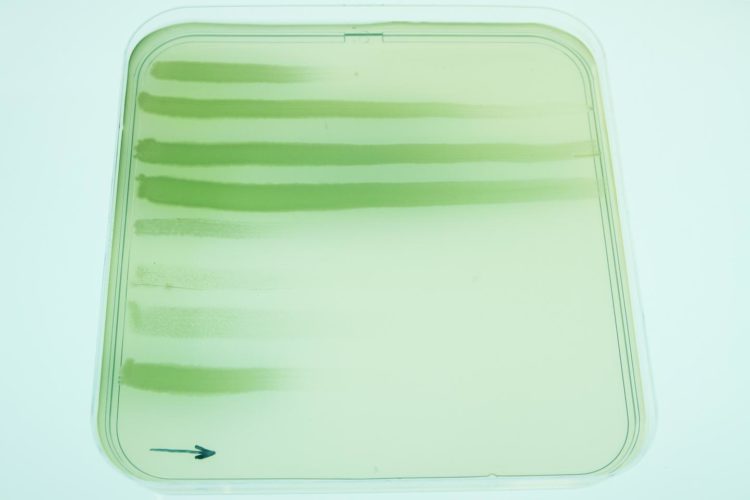Exploiting a strategy known as collateral sensitivity in bacteria could lead to the development of novel and sustainable treatments

Credit: Barbosa et al.
Researchers have provided new insight into a mechanism behind the evolution of antibiotic resistance in a type of bacterium that causes severe infections in humans.
Their findings in the multidrug-resistant bacterium Pseudomonas aeruginosa (P. aeruginosa), published today in eLife, suggest the strategy could be exploited to develop new and sustainable antibiotic treatments.
“Antibiotic resistance is one of the most serious threats to public health worldwide,” says first author Camilo Barbosa, formerly a postdoctoral student in senior author Hinrich Schulenburg’s lab at the Kiel Evolution Center (KEC) of Kiel University, Germany. “The World Health Organization warns of a post-antibiotic era in which infections can no longer be treated and could become one of the most frequent non-natural causes of death.
“The rapid evolution of antibiotic resistance makes antibacterial drugs ineffective within short periods of time, which means we need new strategies to maintain or even improve the effectiveness of existing antibiotics. But this development needs to take the relevant evolutionary processes into account, or else new drugs will likely fail.”
In this study, Barbosa and his colleagues looked into an evolutionary trade-off called collateral sensitivity in P. aeruginosa. Collateral sensitivity occurs when bacteria evolve resistance to one drug but develop increased sensitivity to another drug at the same time.
“While a variety of distinct cases of collateral sensitivities have previously been described, it was still unclear whether they could be exploited for antibiotic treatment,” Barbosa explains. “We tested one key requirement of this principle for medical implementation: stability of the evolutionary trade-off. Is collateral sensitivity stable across time, thereby allowing us to exploit it as a trade-off in order to eliminate bacterial populations and/or prevent emergence of drug resistance?”
Their experiments revealed that P. aeruginosa produces distinct cases of evolved collateral sensitivities in response to different drugs. Some of these are generally stable over time, leading to increased population extinction or at least the absence of the evolution of multidrug resistance. The team also found that the effectiveness of drugs was determined by the order in which they were used, the evolutionary costs for the bacteria when evolving antibiotic resistance, and the underlying genetic mechanisms.
“The pathogen’s ability to adapt was particularly constrained when the treatment included a drug change from an aminoglycoside to a beta-lactam, a penicillin-like substance,” Barbosa adds. In this case, the bacteria were unable to adapt and went extinct as a result of the sequential administration of the antibiotics. In other drug combinations, however, the pathogens were able to develop new multiple resistances. The evolutionary costs of resistance to the bacteria also played an important role in therapy success.
“The effects of changing certain drug classes and the impact of evolutionary costs on the development of resistance demonstrate the enormous potential of evolutionary principles for the design of new, sustainable antibiotic therapies,” concludes senior author Hinrich Schulenburg, Professor in Zoology at the KEC. “As a next step, we plan to further develop these promising evolution-based strategies so that they may one day be used in patient treatment.”
###
Reference
The paper ‘Evolutionary stability of collateral sensitivity to antibiotics in the model pathogen Pseudomonas aeruginosa’ can be freely accessed online at https:/
For more information about the Evolutionary Ecology and Genetics research group, Zoological Institute, Kiel University, visit http://www.
More information about the Kiel Evolution Center of Kiel University is available at http://www.
Media contact
Emily Packer, Senior Press Officer
eLife
[email protected]
01223 855373
About eLife
eLife is a non-profit organisation inspired by research funders and led by scientists. Our mission is to help scientists accelerate discovery by operating a platform for research communication that encourages and recognises the most responsible behaviours in science. We publish important research in all areas of the life and biomedical sciences, including Evolutionary Biology, and Microbiology and Infectious Disease, which is selected and evaluated by working scientists and made freely available online without delay. eLife also invests in innovation through open-source tool development to accelerate research communication and discovery. Our work is guided by the communities we serve. eLife is supported by the Howard Hughes Medical Institute, the Max Planck Society, the Wellcome Trust and the Knut and Alice Wallenberg Foundation. Learn more at https:/
To read the latest Evolutionary Biology research published in eLife, visit https:/
And for the latest in Microbiology and Infectious Disease, see https:/
Media Contact
Emily Packer
[email protected]
Original Source
https:/
Related Journal Article
http://dx.





